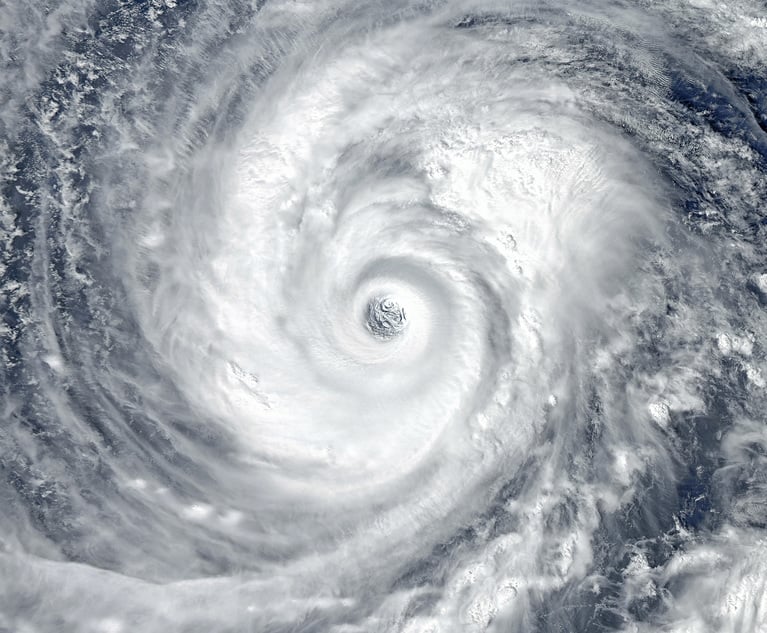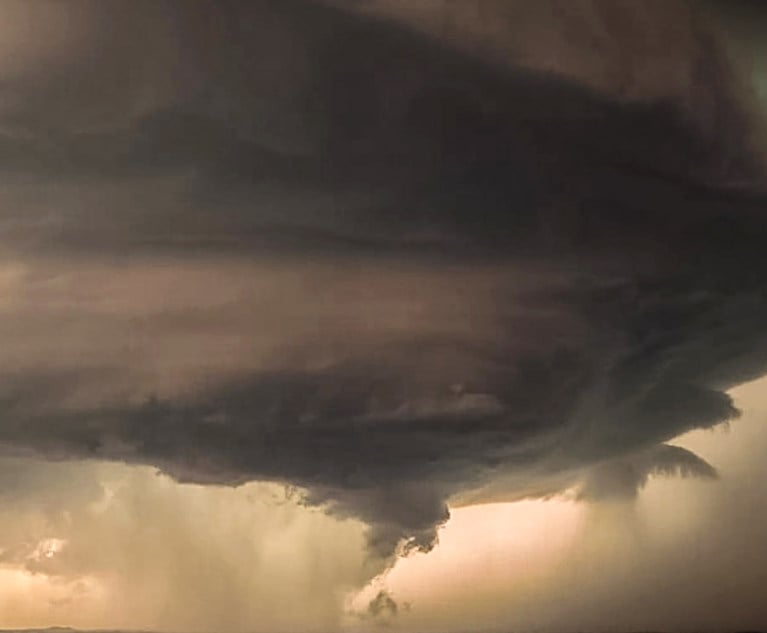Insurer and consumer had a war of words on Nov. 15, 2007, at theNational Underwriter Company's first two-day virtual conference andexpo. Billed to be a “Battle of the Bobs,” the debate featured J.Robert Hunter, insurance director of the Consumer Federation ofAmerica, and Robert P. Hartwig, president of the InsuranceInformation Institute (I.I.I.).
|Unfortunately, this Iconoclast wasn't there to throw a match onthe kindling to get a good roaring fire going. Had he been, givenhis “Grade-C” attitude about insurance (crotchety, cranky, crabby,and cantankerous), he probably would have rooted for the consumerBob. After all, he has taken on the I.I.I. and their statisticsbefore.
|Now what could a consumer advocate find to complain about in theinsurance industry? Surely we're not as bad as that terriblefinancial industry that got in too deep over sub-prime lendinghabits and triggered a financial hissy. Or are we? According toNational Underwriter, P&C, the insurance industry may have beenbacking some of those loans, and might be in for its own hissy fit.At the very least, it will take a hit from all the director andofficer claims that will result.
|In any case, National Underwriter, P&C, predicted that thesetwo Bobs would square off over hurricane and flood damage, creditscoring, federal regulation, and the industry's profitability,which is often right up there in the stratosphere with CEO pay.
||Hurricanes and Flood
|Not too much sense rehashing the Katrina mess, but it will havefallout. The bottom line is that the Federal Emergency ManagementAdministration, which is supposed to be in charge of the NationalFlood Insurance Program, will probably change its position onhaving the Write-Your-Own insurers adjust flood claims rightalongside carriers' own windstorm claims. It was a conflict ofinterest in appearance, and FEMA should never have let it happen,but there you have it.
|When Congress heard that the same insurer staffs who wereadjusting wind claims were also adjusting flood claims, somethinghit a fan. Now it is quite logical that if an adjuster arrives to aclaim but there's no house there — it has been washed away — andwhere the back yard used to be is a commercial fishing boat,there's an awfully strong likelihood that the house was demolishedby flood. There is certainly no evidence of wind. But how do weknow that the same house was not totally destroyed by wind beforethe flood came along and washed it all away? Well, we don't.
|Therein lies the ethical dilemma. How much of the damage wecannot inspect should we attribute to wind, and how much to water?Nothing? All of it? Half of it? So Congress said, “Enough!” andlooked at legislation that would offer a policy covering both windand water damage. I suppose they will let FEMA administer that,too. Oh boy! National Underwriter, P&C, said in the Oct. 1,2007 issue that federal flood insurance reform legislation(including adding wind) “faces stiff headwinds, with Bushadministration officials recommending a veto, and the Senate goingin another direction.” Tailwinds, maybe.
|Credit Scoring and Other Issues
|The next topic — checking an insurance applicant's credit score— is more of an underwriting issue than it is a claim issue, but ithas an impact on claims. While some might say that credit scoresshouldn't have anything to do with underwriting insurance, theplain fact is that someone who is a deadbeat credit risk isprobably going to be a claim-maker sometime during the policyperiod. Hey, I'm not saying that it's bad to be poor (although itcertainly isn't good), but the reality is that often the folks whohave gotten themselves into a credit mess are the ones who are aptto be a bit careless in other matters, too. It is always evidentthat the rich get richer, and the poor get children, although evenhigh-class teens can be loss producers. They're the ones racingsports cars on Saturday night.
||In July 2007, National Underwriter, P&C, reported on anethics survey in which readers responded to the question, “Is itethical to force an unpopular rating factor such as credit scoresonto the consuming public, particularly if critics contend theaccuracy of the information used — as well as the disparate impactit might have on low income or minority groups — is in question?”Only 14 percent said it was ethical, but 10 percent said it wasn't.Another 10 percent said it had nothing to do with ethics, andtwo-thirds said that they had no opinion as to whether it wasethical or not, and they were split as to whether credit reportingshould even be used for rating purposes. I suspect I'd go with thefolks saying it was ethical, based on long years of dealing withclaims and seeing how socio-economic factors affected the costs ofthose claims.
|But before your Iconoclast digs himself any deeper into thishole, let's move on to federal regulation. National Flood = FEMA.Enough said. Well, maybe not quite enough. A bunch in Congress,maybe right-wingers or left-wingers — or no wings at all — want todo away with the antitrust immunity given to the insurance industryunder the 1945 McCarran-Ferguson Act, and return regulation of theinsurance industry to the Feds. In Oct. 2007, a Congressionalfinancial services subcommittee was split on the need for anoptional federal charter. The National Association of InsuranceCommissioners, meanwhile, defended their state-by-stateposition.
|Federal regulation might do away with all of those stateinsurance departments, which as all consumers will tell you, arenothing but hotbeds for politicians on the take from insurancecompanies. Who needs those bums? With federal regulation, thosestate-by-state rate approvals and licensing and all those otherinsurance commission tasks could be done at one big bureaucracy.Right?
|Wrong! There are, perhaps, a few areas where some centralizationmight be useful, but for the most part state regulation has beenvery effective, and the last thing anyone ought to desire isanother big federal bureaucracy. While nobody wants to seemonopolies created, eliminating the antitrust sword that wouldotherwise hang over the head of the insurance industry could havesome negative implications. Insurers have to rely on each other —competitors though they may be — if they are to be efficient andremain solvent.
||The feds got involved with group health insurance, citing theEmployee Retirement Income Security Act (ERISA) as the basis forfederal court jurisdiction, and now somebody hassled by their owngroup insurer can't use the state's insurance department complaintsystem or the state courts to sue the rascals. What? You have towrite Congress now if your health insurer won't pay a bill? Whowants that? And what sort of positive regulation have the feds doneover the ever-rising cost of group insurance? At least the stateslook at the rates.
|Just what would happen if the insurance industry lost theantitrust law immunity it has by virtue of the McCarran-FergusonAct? The National Association of Mutual Insurance Companies askedthat question at their Septtember convention, reported Matt Bradyin the Sept. 24 issue of National Underwriter, P&C, and got afrightening answer. In short, prices would rise while availabilityof coverage would decline. There would be smaller companies withoutthe ability to accurately calculate risks or set prices, thus lessable to compete. There would be no joint-venturing to providemulti-company coverages on major risks. Every time an insurer evenpeeked at another insurer's figures, there would be litigationfiled. Every joint action between insurers would be challenged andput under suspicion. All of this would cost money, so prices wouldrise. Do we really want that, Mr. Consumer?
|And what about those big-buck profits insurers have been haulingin? Shame, shame! Do we want them to lose money? Just because therewere no big hurricanes that hit the Atlantic or Gulf Coasts in 2006or 2007 is not to say that none will hit in 2008. Who knows whatdisasters 2008 will bring, and if they arrive, this Iconoclastwants a nice big fat insurance company insuring him! The skimpyones go broke.
|The Real Consumer Issue
|If I were to have picked a topic for this debate, it would havebeen to ask the insurance industry's Bob why the industry hasdropped the ball on educating claim staffs, putting them behindcomputers. When are we going to get adjusters back out on thestreet where they belong? Trying to investigate claims and preventmuch of that $120 billion in fraud loss? If even half of that iscorrect, the consumers' Bob should blast our industry all overtarnation for having allowed it to happen.
||A possible response? Well, it's all those dishonest “consumers”Hunter represents. Consumers, left to their own devices, will fudgetheir claims and exaggerate and make insurers pay more than theyshould — something I.I.I. calls “soft fraud.” Those consumers willget away with it, Hunter might respond, first, because adjustersdon't go out in the field and investigate the claims anymore,meeting with claimants and insureds, and, even if they did, halfwouldn't know what to do when they got there.
|What on earth?! Hasn't the insurance industry produced thegreatest batch of claim representatives that ever existed? Notaccording to National Underwriter, P&C. In the Sept. 10, 2007issue, Mark E. Ruquet reported on what was said at the 11th AnnualAmerica's Claim Event panel discussion, which was sponsored byClaims Magazine and moderated by Managing Editor Eric Gilkey. Itwasn't good.
|“The retirement of experienced claim adjusters is forcingcarriers to redevelop education and recruitment programs to replaceand expand their dwindling ranks, insurance executives say.”Dwindling? Insurers have allowed those ranks to become downrightdevastated!
|“There's a void in the industry,” said CNA's George Fay. Void?Quality claim adjusting skills are absolutely AWOL. Ruquetcontinued, “Mr. Fay said that after making significant cuts in thedevelopment and recruitment of claim adjusters over the years,insurers are now finding a shortage of professionals.” Co-panelistVincent Armentano of Travelers agreed. “We need a critical focus onthis,” noting that experienced claim forces will be greatly reducedin coming years.
|Why? Because claim adjusting has become a dead-end job insteadof a professional vocation, and it has a horrible turnover rate.Who wants to make a career out of sitting in a cubicle “processing”claims like some human automaton, knowing that probably half thoseclaims are being overpaid or underpaid because the adjuster doesn'thave the background in good solid loss and risk education to knowthe difference?
||Profit From Loss
|In the same issue of National Underwriter, P&C, Prof. PeterR. Kensicki, a member of the ethics committee of the CPCU Society,asked if it was ethical for insureds to profit from their losses.He asked the wrong question. What both he and Hunter needed to askis whether it is ethical for the insurance industry to profit fromits claim overpayments. If I had been Consumer Bob in that debate,that is what this Iconoclast would have asked.
|If, as the I.I.I. Fact Book has been saying annually for years,the property and casualty insurance industry is losing billions ayear to fraud, is that loss not going back into the premium formulaand being charged to its policyholders as premium? Of course it is!And is profit not a percentage of premium? Of course it is. Well,if we were to put adjusters back on the street and reduced thatfraud total down by even half — at not much additional cost, justbetter on-the-street adjusting — would that not bring the price ofinsurance down by a considerable amount? Of course it would.
|Ah, but there is a catch. If the amount of premium came down, sowould the amount of profit. The percentage would remain the same,but the dollar amount would fall. Try explaining that to WallStreet!
|The catch-22 in all of this is that consumers want cheaperinsurance, but they also want their stock portfolios to remainhigh. Insurers, at least stock insurers, depend on investors topurchase their stocks because those stocks are valuable. Investorswill put pressure on corporations — including the financialcorporations that own insurers — to keep the prices high.Consumers, meanwhile, may like the fact that they can “get awaywith something” when nobody from the insurance company ever comesout to really investigate the claims. What's the bottom line?Probably that not much will change in the near future. Claimrepresentatives will stay stuck in their cubicles, and fraud willcontinue to flourish.
|Ken Brownlee, CPCU, is a former adjuster and risk managerbased in Atlanta, Ga. He now authors and edits claim-adjustingtextbooks.
Want to continue reading?
Become a Free PropertyCasualty360 Digital Reader
Your access to unlimited PropertyCasualty360 content isn’t changing.
Once you are an ALM digital member, you’ll receive:
- All PropertyCasualty360.com news coverage, best practices, and in-depth analysis.
- Educational webcasts, resources from industry leaders, and informative newsletters.
- Other award-winning websites including BenefitsPRO.com and ThinkAdvisor.com.
Already have an account? Sign In
© 2024 ALM Global, LLC, All Rights Reserved. Request academic re-use from www.copyright.com. All other uses, submit a request to [email protected]. For more information visit Asset & Logo Licensing.








